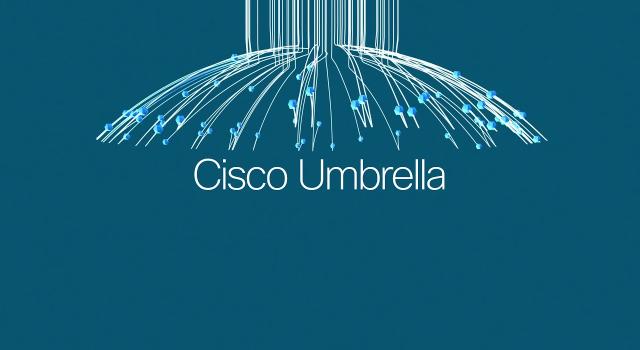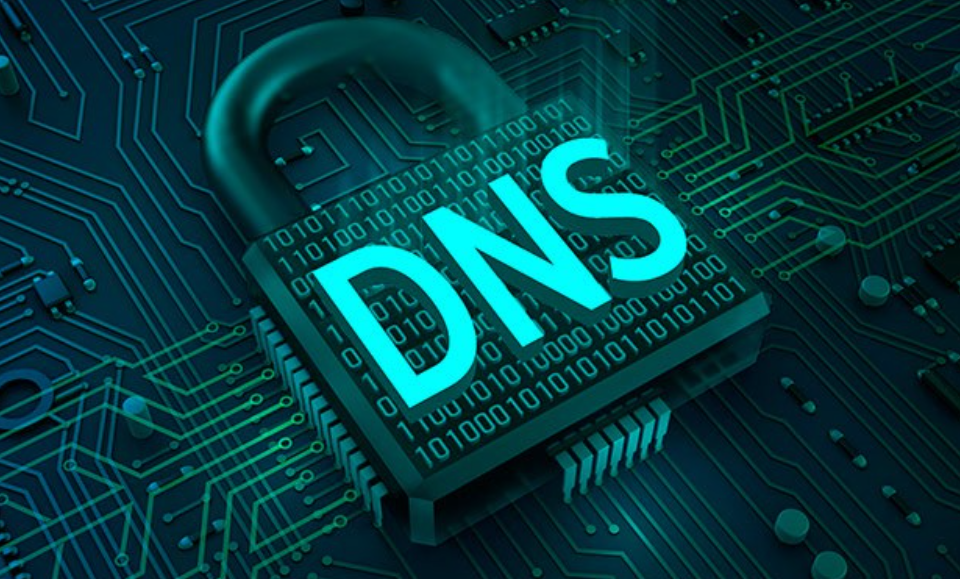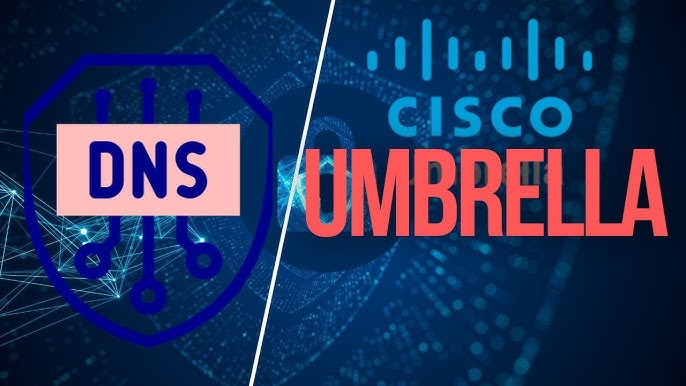
The Domain Name System (DNS) is a critical yet often overlooked component of network security. As a backbone of the internet, DNS resolves domain names into IP addresses, enabling smooth online communication. However, its fundamental role also makes it a target for cybercriminals.
Organizations face challenges like malware infiltration, phishing attacks, and ransomware campaigns, which frequently exploit DNS to compromise systems. This is further complicated by the increasing sophistication of cyber threats and the diverse attack vectors used by adversaries. With remote work becoming the norm, securing DNS traffic has never been more important for maintaining operational continuity and protecting sensitive data.
Cisco Umbrella has emerged as a leading DNS-layer security solution, providing robust protection against modern threats. However, various Cisco Umbrella competitors also offer alternative approaches to DNS security, each with unique features and limitations.
In this article, we’ll explore how Cisco Umbrella compares to other DNS security solutions, analyzing its features, benefits, and key differentiators.

DNS security involves measures to protect the DNS infrastructure from cyber threats. By monitoring and analyzing DNS requests, organizations can prevent access to malicious sites, block phishing attempts, and reduce exposure to ransomware. DNS-layer security ensures threats are mitigated before they reach corporate networks or endpoints, providing a proactive layer of defense against potential risks.
This proactive approach is vital in modern cybersecurity frameworks. DNS-layer security stops malicious activity at its earliest stages, minimizing the need for reactive measures that often result in downtime or data loss. It also plays a critical role in securing remote users who frequently connect to corporate networks via untrusted environments.
Common cyber threats addressed by DNS security include:
Given the growing reliance on cloud applications and remote users, traditional on-premises DNS security solutions struggle to keep pace. Modern businesses require cloud-based DNS-layer security solutions to safeguard their networks effectively. This need has fueled the rise of Cisco Umbrella competitors offering diverse approaches to DNS security, from advanced threat intelligence to seamless cloud-native integration.
Cisco Umbrella’s cloud-native design allows organizations to deploy the solution effortlessly, with minimal infrastructure changes. Unlike legacy systems, Umbrella does not require hardware appliances or extensive configuration, making it ideal for businesses with distributed teams and remote workers. Its scalability ensures seamless protection for businesses of all sizes, whether securing a small office or a global enterprise network with thousands of users.
Cisco Talos, one of the world’s largest and most trusted threat intelligence teams, powers Cisco Umbrella. With data collected from billions of internet events daily, Talos provides real-time insights into emerging cyber threats. This intelligence enables proactive detection of malicious sites, phishing campaigns, and other malicious activity. Organizations benefit from an unparalleled level of protection that evolves with the threat landscape.
Cisco Umbrella’s policy control capabilities allow administrators to customize security settings based on users, groups, or devices. This ensures tailored protection for remote users, remote workers, and on-premises staff, regardless of their location. Policies can be adapted to enforce content filtering, restrict access to potentially harmful categories, or provide advanced monitoring of high-risk activities.
As part of Cisco’s security portfolio, Umbrella integrates effortlessly with other Cisco products like Meraki and AnyConnect. This interconnected approach simplifies network management, enabling organizations to create a unified enterprise security strategy. For example, businesses using Meraki SD-WAN can extend Umbrella’s protection to all branch offices with minimal configuration.

Cisco Umbrella’s cloud-based model eliminates the need for complex on-premises infrastructure. Deployment typically takes minutes and does not require advanced technical expertise. Competing solutions, such as older DNS appliances, often require extensive maintenance, increasing operational overhead. Cisco Umbrella alternatives like Zscaler and Akamai may also offer cloud-native options, but few match Umbrella’s simplicity and rapid deployment capabilities.
Leveraging Cisco Talos, Cisco Umbrella provides superior global threat intelligence. Its ability to detect malicious activity, phishing sites, and malware-infected domains outpaces many competitors. For example, while Akamai Secure Internet Access offers robust threat detection, its setup complexity can hinder operational efficiency. Similarly, Zscaler’s threat intelligence is effective but lacks the seamless integration Cisco provides. Umbrella’s combination of predictive analytics and real-time insights makes it a standout choice for businesses seeking robust DNS-layer security.
Cisco Umbrella’s cloud architecture ensures high performance with minimal latency, even as businesses grow. The solution’s global network of data centers ensures consistent performance for users worldwide, making it an ideal choice for organizations with a distributed workforce. Cisco Umbrella competitors often struggle to match this scalability or introduce network overhead during traffic filtering. For remote users and remote workers, Umbrella’s performance remains reliable, ensuring uninterrupted access to critical applications.
Although Cisco Umbrella offers comprehensive features, its cost-effectiveness is a key strength. Unlike some Cisco Umbrella alternatives, which may have hidden fees or require additional tools for full functionality, Umbrella’s pricing delivers a clear return on investment (ROI). Businesses benefit from a single cloud security service that consolidates DNS-layer security, content filtering, and advanced threat detection, reducing the need for multiple point solutions.
Organizations already leveraging Cisco solutions like Meraki or AnyConnect will find Umbrella’s integration invaluable. This interconnected approach simplifies network management and enhances the overall level of protection. IT teams can manage policies, monitor threats, and enforce security measures from a unified dashboard, streamlining operations and reducing complexity.
Cisco Umbrella’s intelligent routing reduces internet downtime and ensures faster, more secure access to web resources. This is particularly beneficial for remote workers who rely on uninterrupted connectivity. By blocking malicious sites and optimizing DNS resolution, Umbrella enhances productivity and minimizes the risk of disruptions caused by cyber threats.
With continuous updates and cutting-edge threat intelligence, Cisco Umbrella ensures businesses stay ahead of evolving cyber threats. Its modular design allows organizations to adapt the solution to their changing needs, whether expanding to new locations or integrating additional security features. This makes it a reliable choice for enterprise security in an ever-changing landscape.
Zscaler provides a comprehensive Secure Web Gateway (SWG) solution with a focus on the Secure Access Service Edge (SASE) model. While it excels in overall security, it may lack the seamless DNS-layer integration that Cisco Umbrella offers. Additionally, Zscaler’s pricing model can be a barrier for smaller organizations or those looking for a straightforward deployment process.
Akamai’s advanced threat intelligence makes it a strong contender. Its global infrastructure supports high-performance threat detection and response, but its complexity in deployment and configuration can pose challenges for smaller IT teams or businesses with limited dedicated security professionals. Compared to Cisco Umbrella, Akamai may require more extensive training and setup time.
Open-source DNS security solutions provide low-cost options but often lack advanced features, comprehensive support, and integration capabilities. While they may suffice for smaller organizations, their limitations become apparent in larger, more dynamic environments. For businesses requiring enterprise-grade protection and scalability, Cisco Umbrella provides a more robust and reliable alternative.
When selecting a DNS security solution, businesses should evaluate:
Cisco Umbrella delivers unparalleled value with its comprehensive feature set, seamless integration, and proven threat intelligence from Cisco Talos. Unlike many competitors, it provides a holistic approach to DNS-layer security, ensuring businesses can protect their networks without compromising on performance or usability. These attributes make it a trusted choice for organizations seeking robust DNS-layer security.
We understand that choosing the right DNS security solution can be challenging. Stratus Informational Systems provides expert guidance to help businesses navigate the available options. Whether you’re considering Cisco Umbrella or exploring other leading solutions, our team can provide tailored recommendations to meet your unique needs.Looking to upgrade your DNS security? Contact Stratus Informational Systems today for professional advice on Cisco Umbrella and other Cisco Meraki products.

Stay informed about our newest releases and updates